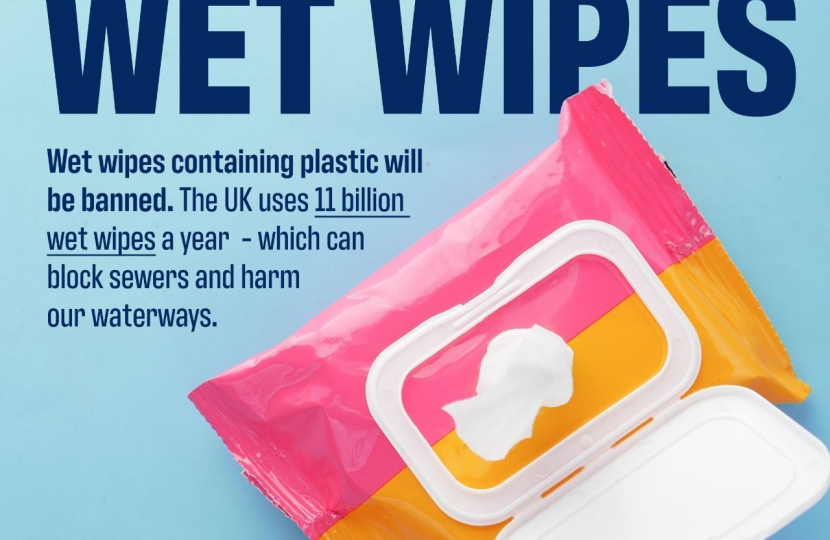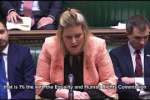
Mims Davies MP is pleased to introduce the consultation on banning wet wipes with plastic.
A consultation on banning wet wipes containing plastic across the UK has been launched under plans to tackle plastic pollution and clean up waterways.
A key measure in the UK Government’s Plan for Water, the ban forms part of the government’s ongoing work to ensure there is more investment, stronger regulation and tougher enforcement across the water system, helping tackle plastic and microplastic pollution and improve water quality. Plastic pollution takes hundreds of years to break down and inflicts serious damage on our ocean, rivers and land. It is also a source of greenhouse gas emissions, from its production and manufacture to the way it is disposed.
Wet wipes containing plastic break down into microplastics over time, which can be harmful to the environment and human health. Banning wet wipes containing plastic would help alleviate this issue, as well as reducing the volume of microplastics entering wastewater treatment plants when wrongly flushed.
Alternatives to wet wipes containing plastic are already available, with a number of major brands removing plastic from wet wipes. Boots, Tesco and Aldi are amongst major retailers who have stopped selling wet wipes containing plastic. The ban would build on this action from retailers to make only plastic-free wet wipes available to consumers.
The plans have been set out in a joint consultation with the devolved administrations which has been launched today to seek views on banning the manufacture, supply and sale of plastic-containing wet wipes across the UK.
It recognises public calls for action to tackle plastic pollution in waterways, and widespread public support for the proposed ban. A 2021 Call for Evidence in England found that 96% of respondents supported a ban on wet wipes containing plastic.
Wet wipes contribute to 94% of sewer blockages, which can lead to damage to properties and can result in sewage-related litter entering the environment. The Environment Secretary has told producers that labels saying ‘flushable’ or ‘fine to flush’ may encourage consumers to dispose of wipes down the toilet, rather than disposing of them responsibly in the bin.
Please do submit your views here




